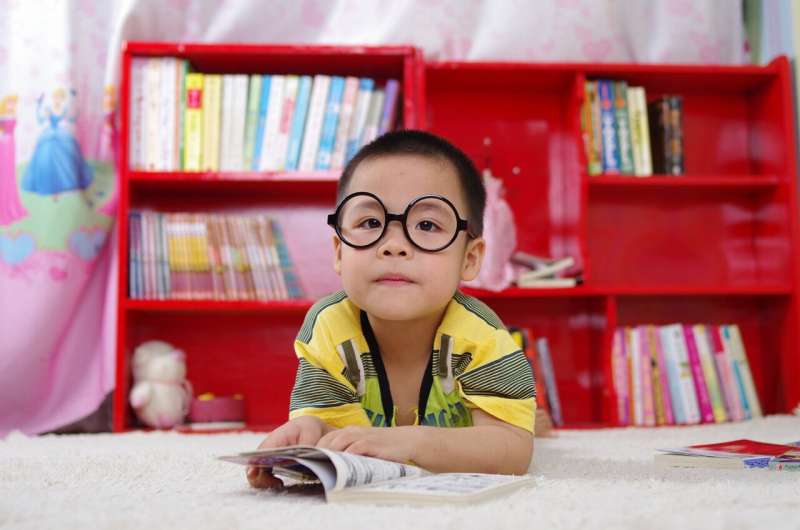This article has been reviewed according to Science X's editorial process and policies. Editors have highlighted the following attributes while ensuring the content's credibility:
fact-checked
trusted source
proofread
Short-sighted children may suffer from disrupted sleep

Near-sightedness or myopia is projected to affect half of the world's population by 2050, and it's on the rise among children who increasingly spend time indoors away from sunlight and on screens.
Poor sleep may also be a detrimental side-effect of myopia, emphasizing the need for testing and better management of the condition from an early age, according to a new study led by experts at Flinders University.
The article, "Delayed melatonin circadian timing, lower melatonin output, and sleep disruptions in myopic or short-sighted children," has been published in Sleep.
"Our study found myopic children have both lower nocturnal melatonin output and delayed melatonin circadian timing compared to normal-sighted children," says Flinders University Associate Professor of Optometry Ranjay Chakraborty, who leads the Myopia and Visual Development Lab at the College of Nursing and Health Sciences.
"We also observed delays in short-sighted children's sleep and wake-up time as well as poor and reduced sleep among this myopic group."
The study looked at differences in melatonin timing and output, sleep characteristics and cognitive function in 26 myopic and 14 non-myopic children aged between 8 and 15 years.
Good sleep is beneficial for a child's eye development and exposure to daylight is connected to melatonin, dopamine and other regulators which can help circadian patterns.
Emeritus Professor of Psychology and sleep expert Leon Lack says further evidence that short-sighted or myopic children have disturbances in their sleep and melatonin circadian rhythms paves the way for further treatments and management strategies.
"We would recommend children increase their morning light exposure to outdoor sunlight or enhanced indoor lighting," says Professor Lack, from the Flinders Sleep Health research lab.
"Further research could investigate ways to stop or at least reduce the development of myopia—or prevent it from developing—would be immense clinical importance."
While prescription glasses or contact lenses are usually used to manage the symptoms, myopia is the leading cause of vision impairment and a major cause of blindness—a challenge for the World Health Organization's global initiative for the elimination of avoidable blindness.
The researchers recommend that a larger study in future could assess the long-term relationship between systemic melatonin and myopia.
In spite of research efforts so far, much needs to be learnt about the underlying mechanisms of the growing prevalence of myopiagenesis (near or distance vision impairment) around the world.
More information: Ranjay Chakraborty et al, Delayed melatonin circadian timing, lower melatonin output, and sleep disruptions in myopic, or short-sighted, children, Sleep (2023). DOI: 10.1093/sleep/zsad265

















